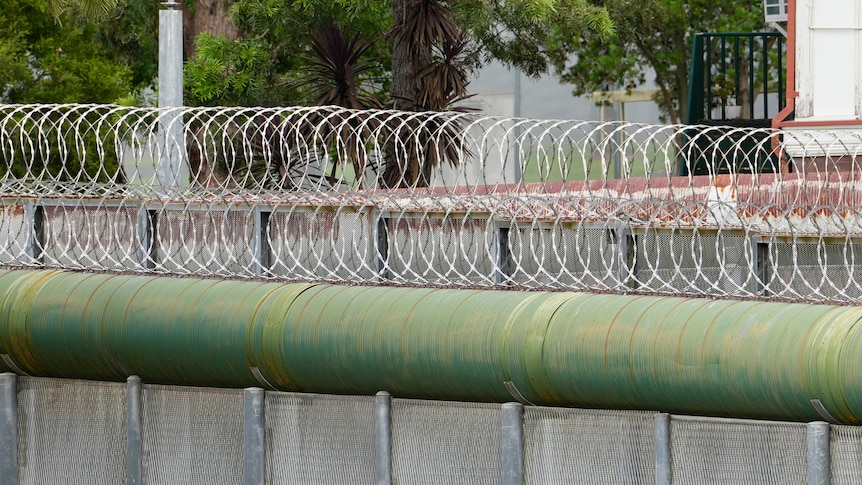By Friday, 19 September 2025, 2:26 Pm Opinion: Richard S. Ehrlich
Copyright scoop

By Richard S. Ehrlich
President Donald Trump is
miffed that the U.S. is aced-out by China in processing rare
earths which are especially prized for making strategic-use
Those magnets are critical to create
high-tech weaponry and equipment used by military and
aerospace industries, including for U.S.
China hopes to strengthen its near-monopoly
over the world’s military-grade processed dysprosium,
terbium, and other rare earth elements by securing
rebel-held mines in Southeast Asia’s war-torn Myanmar while
boosting support for its coup-installed military
dictatorship.
“China intelligently went in and they
sort of took a monopoly of the world’s magnets,” Mr. Trump
told reporters on August 25 while discussing
“Nobody needed magnets until they convinced
everybody 20 years ago, ‘let’s all do
“It’ll take us probably a year to have
them. We’re heavy into the world of magnets now, only from
a national security standpoint.”
The U.S. Embassy in
Myanmar’s Chargé d’Affaires Susan Stevenson visited
northern Kachin state’s capital Myityina on August 11-13,
but reportedly did not meet the Kachin Independence Army
(KIA) insurgents who control the mountainous state’s rare
earth mines.
“[Stevenson] did not engage with KIA
officials or members of the military regime during her
visit,” the embassy’s spokesperson reportedly
“The visit was part of [Stevenson’s] ongoing
familiarization travel, to better understand local
socio-economic conditions throughout the country,” the
spokesperson said, according to Irrawaddy news which focuses
on Myanmar.
The U.S. is locked out of extracting the
raw supplies from Myanmar’s mines which China dominates,
processing 90% of the world’s rare earth
“Myanmar is now the single largest source of
heavy rare earth elements globally,” said the London-based
environmental watchdog Global Witness.
“The U.S. has
one operational rare earths mine, but it does not have the
capacity to separate heavy rare earths, and has to send its
ore to China for processing,” the British Broadcasting Corp.
(BBC) reported.
“There used to be U.S. companies that
manufactured rare earth magnets. Until the 1980s, the U.S.
was in fact the largest producer of rare earths.
these companies exited the market as China began to dominate
in terms of scale and cost,” the BBC said.
expects Chinese money, political persuasion and Myanmar’s
aerial bombardments in the mountainous north and east will
eventually pacify insurgents where rare earth elements are
being mined, and further secure their
extraction.
During the past several years, alienation
between Washington and Napyidaw, Myanmar’s capital, enabled
Beijing and Moscow to increase their support for Myanmar by
providing weapons, investments, and diplomatic backing in
international forums.
Chinese energy firms now supply
solar, wind, hydropower, and gas to France-sized Myanmar to
ease its expensive fuel costs.
China was helping to
extract most of Myanmar’s rare earths for several years, but
Beijing’s grip slipped in 2024 when insurgents seized the
“Most of the HREE (heavy rare earth elements)
from Myanmar originate from Kachin state, on the border with
China,” Global Witness said.
“China, which controls,
refines, produces, and stockpiles nearly 90% of the
world’s rare earth supply, has long sourced a significant
share of its raw materials from Myanmar’s northern border
regions,” the Thailand-based Institute for Strategy and
Policy, a think tank, said on July
“Satellite imagery shows at least 370
mining sites in Kachin, mainly in Chipwi and Momauk
townships. These sites contain nearly 3,000 in situ leaching
ponds for mineral extraction,” the institute’s Nan Lwin said
in a report titled, “Myanmar’s rare earths: Cries behind
critical minerals.”
“According to our
data, Myanmar’s rare earth exports to China exceeded $3.6
billion in the past four years. That’s over five times
higher than the same period before the [2021] coup,” Nan
Minority ethnic Kachin Independence Army
(KIA) rebels fighting for autonomy or independence, gained
control over Myanmar’s most valuable rare earth mines in
Before the insurgents’ victory, Beijing’s
government-owned China Rare Earth Group worked with
Myanmar’s regime, handling extractions and exports from
Kachin state’s mines to China, while providing Chinese
experts to oversee technical issues.
Beijing must now
deal more directly with the KIA and is expected to bestow
billions of dollars into the guerrillas’ coffers,
emboldening their fight against the junta which China
simultaneously supports.
A future ceasefire however
could allow a more balanced sharing of China’s payments for
the raw rare earths between the Kachin rebels and Myanmar
If Washington wants access to the rare earth
mines, it would also have to deal directly with the KIA and
ruling junta.
Kachin state forms Myanmar’s
northernmost tip and borders China and
Transport routes out of Kachin state for
shipment to the U.S. could be problematic to
Trucks currently drive northeast from
Myanmar’s Kachin, Shan, and Wa mines to China’s Yunnan
province loaded with fresh, unprocessed rare earths, in
exchange for Chinese-made chemicals needed at the mines for
extractions.
Those mines inject ammonium nitrate and
other toxic chemicals into the sides of mountains and jungle
pits, leaching out ores and concentrate while heavily
poisoning soil and rivers.
Waste from the mines,
including arsenic, have turned the Kok, Mekong, and other
rivers into toxic sewers near the mines, impacting the
health of people in Myanmar and downriver in neighboring
Rare earths include 17 chemically similar
Most of the elements are abundant on earth
but considered rare because finding them in a pure form is
uncommon, and to extract and process them is extremely
difficult and expensive.
Beijing was estimated to
posses at least 85 percent of the world’s dysprosium and
terbium after embracing Myanmar’s military regime when it
toppled an elected civilian government in a 2021
Kachin state is where mostly dysprosium and
terbium are being extracted — two of the world’s most
expensive heavy rare earths.
Dysprosium is a soft
metal prized by the military because it is extremely
magnetic, and is also often used in the control rods in
nuclear reactors because it absorbs
Solid-state lasers, electric vehicles, wind
turbines, computer databases and other equipment also
benefit from its heat resistance.
Dysprosium’s name
comes from “dysprositos,” a Greek word which can be
translated as “hard to get”.
Terbium is a rare earth
metal which helps illuminate florescent lights, LEDs,
television screens, X-rays, pulsed lasers, and other
light-sensitive devices.
Both elements are needed by
the U.S. and other countries to create high-tech weapons and
equipment for military and aerospace use.
involvement in Myanmar grew when minority ethnic Shan
guerrillas also scored victories at the end of 2024 in their
decades-long quest for autonomy or independence for Shan
state, their mountainous eastern homeland, and gained
control over rich veins of rare earth
Beijing was able to help squeeze Shan
guerrillas into retreating from Lashio, a key city, and
agree to a ceasefire with the regime.
“Now, in the
hillsides of Shan state in eastern Myanmar, Chinese miners
are opening new deposits for extraction, according to two
sources, both of whom work at one of the mines,” Reuters
reported in June.
“At least 100 people are working
day-to-night shifts excavating hillsides and extracting
minerals using chemicals, the sources said.
mines in Shan state are controlled by the powerful UWSA
(United Wa State Army) rebels who often honor their
commercial deals with China in exchange for weapons and
other aid, despite Beijing’s support for the regime in
Naypyitaw,” Reuters reported.
The Wa guerrillas in
eastern Myanmar lord over lucrative opium growing zones in
mountains on Shan state’s border with China.
Kachin and other insurgents seized the mines, Beijing
predicted rare earths would become scarcer and prices would
rise, which apparently became part of the reason China
banned exports of processed rare earths to the U.S. in
Myanmar’s military is locked in a civil war
against the Kachin, Shan, Wa and a handful of other minority
ethnic insurgent groups along the country’s borders with
Bangladesh, India, China, Laos, and Thailand.
asked Myanmar, formerly known as Burma, to allow Chinese
security forces into the country to protect its rare earth
investments.
Though the two neighbors enjoy good
relations, Naypyitaw rejected the proposal.
between Washington and Napyidaw meanwhile are strained due
to the regime’s deadly opposition to democracy.
June, President Donald Trump banned citizens from Myanmar
and 11 other countries from entering the U.S., to guard
against “foreign terrorists” and other problems.
will not allow people to enter our country who wish to do us
harm,” Mr. Trump said.
Myanmar depends on Beijing’s
weaponry, cash, and diplomatic support but now appears open
to better relations with the U.S.
Friendship with
President Trump could enable the impoverished, resource-rich
country to attract international investment and offset gains
made by the guerrillas.
The potential blossoming of
relations came after it appeared to some that the U.S. might
be softening its tough stance against the Buddhist-majority
In early July, Mr. Trump wrote to Myanmar’s
ruling military leader Gen. Min Aung Hlaing informing him
that the U.S. was raising its tax on imports from Myanmar to
“It’s certainly the first public indication
I’ve seen of U.S. acknowledgement of Min Aung Hlaing and
the junta,” Richard Horsey of the London-based
International Crisis Group reportedly said.
general responded in a rare letter hailing Mr. Trump and
requesting normalization of economic relations.
exchange, the general said Myanmar would reduce its 88%
import tax on U.S. goods to between zero and
“Reconsider easing and lifting the economic
sanctions imposed on Myanmar, as they hinder the shared
interests and prosperity of both countries and their
peoples,” Gen. Min Aung Hlaing said.
The general’s
response to Washington was “a formal letter framing
Trump’s correspondence as implicit recognition of his
illegitimate coup-installed regime
“Within two days,
he [Gen. Min Aung Hlaing] responded with a formal letter,
framing Trump’s correspondence as implicit recognition of
his illegitimate coup-installed regime,” said Free Myanmar
advocacy group co-founder Than N Oo.
Two weeks later
on July 24, without explanation, the U.S. Treasury’s Office
of Foreign Assets Control removed sanctions on some
influential pro-regime individuals in Myanmar involved in
technology and other businesses.
“senior general acknowledged the [U.S.] president’s strong
leadership in guiding his country towards national
prosperity with the spirit of a true patriot,” the country’s
government-controlled media responded at the
Gen. Min Aung Hlaing also expressed
gratitude to Mr. Trump for cancelling U.S. government-funded
Voice of America and Radio Free Asia’s Burmese language
broadcasts which had been pumping out criticism of the
regime and enlightening the country’s citizens about
advances by separatist rebels and pro-democracy
The U.S. State Department however maintained
sanctions on Gen. Min Aung Hlaing for his brutal rule which
helped spiral Myanmar into civil war, resulting in thousands
dead on both sides since the 2021 coup.
minerals, including rare earth elements, are essential for
national security and economic resilience,” the White House
said in April.
“Processed critical minerals and their
derivative products are key building blocks of our defense
industrial base and integral to applications such as jet
engines, missile guidance systems, advanced computing, radar
systems, advanced optics, and secure communications
“The United States remains heavily
dependent on foreign sources, particularly adversarial
nations, for these essential materials, exposing the economy
and defense sector to supply chain disruptions and economic
coercion,” the White House said.
Richard S. Ehrlich
is a Bangkok-based American foreign correspondent reporting
from Asia since 1978, and winner of Columbia University’s
Foreign Correspondents’ Award. Excerpts from his two new
nonfiction books, “Rituals. Killers. Wars. & Sex. —
Tibet, India, Nepal, Laos, Vietnam, Afghanistan, Sri Lanka
& New York” and “Apocalyptic Tribes, Smugglers &
Freaks” are available athttps://asia-correspondent.tumblr.com
© Scoop Media



